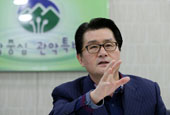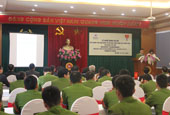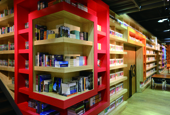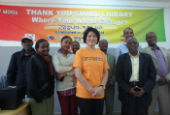Forty-seven new public libraries are scheduled to open this year, bringing the total number of libraries in the nationwide network to 968.
In addition, the number of books available at public libraries will hit 94.6 million this year, an increase of around 5 million books. The Presidential Committee on Library and Information Policy and the Ministry of Culture, Sports and Tourism announced their second comprehensive library development plans on January 30. According to the scheme, 47 new public libraries will open this year, including 12 in Gyeonggi-do (Gyeonggi Province), eight in Seoul and five in Incheon. With these additions, the number of people per public library will be 53,000.
The government has set aside KRW 758.3 billion for library-related budget items, and KRW 583.6 billion of that will be spent on building new libraries and upgrading existing ones.
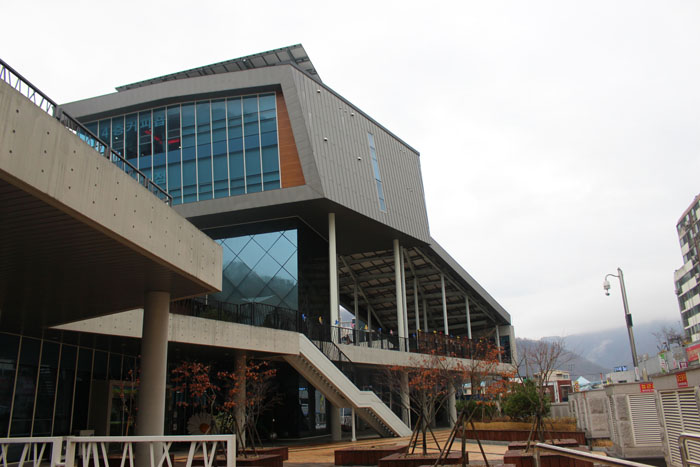
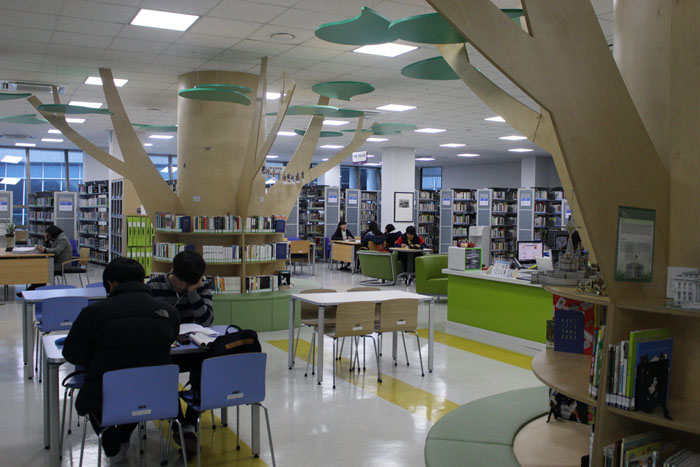
The culture ministry and the Ministry of Education, among others organizations, will also provide various programs at the public libraries. There will be an average of 40 lifelong learning classes offered at each library, targeting everyone from pregnant women to the elderly. The "humanities on the road" program will be expanded so that up to 60,000 citizens can benefit from the program at 280 libraries across the country. Some 2,460 lectures on literature, including face-to-face meetings with authors, will be provided at the libraries as part of various reading and cultural programs.
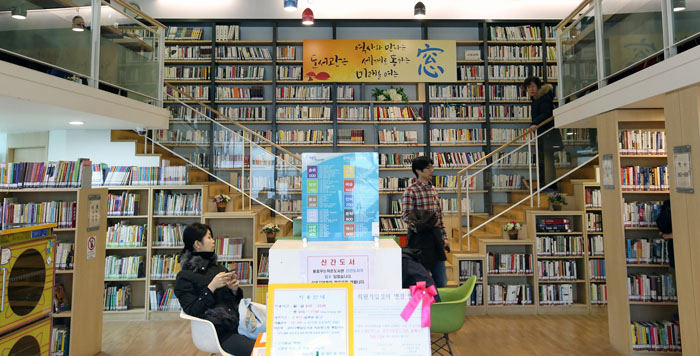
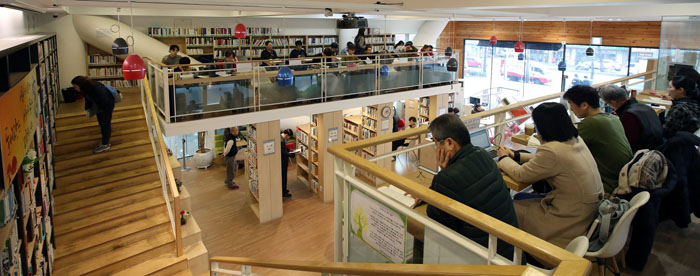
The culture ministry plans to employee 191 additional librarians at public libraries in 17 cities and provinces to upgrade the quality of their services. The number of public libraries where a single compatible library card can be used will rise to 395. The culture ministry will expand its ubiquitous library service of automated library kiosks and install radio-frequency identification (RFID)systems at public libraries.
Services for those who have difficulty in accessing a library will be strengthened. In addition, library services for non-Korean residents and for multicultural families will be expanded. Multicultural sections will be set up at five public libraries, and more libraries, up to 100, will provide multicultural programs. The government will provide more books in Braille, videos with sign language and subtitles, digital audio books and other reading aids for the disabled.
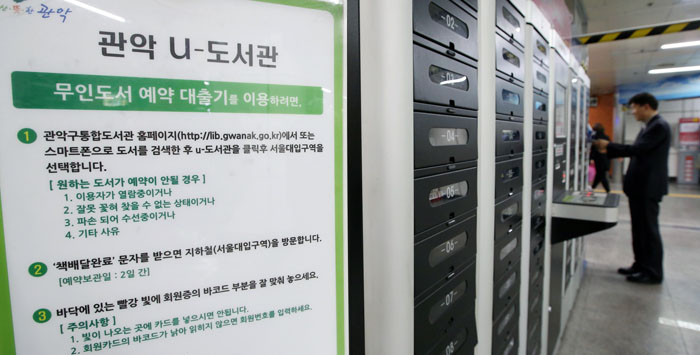
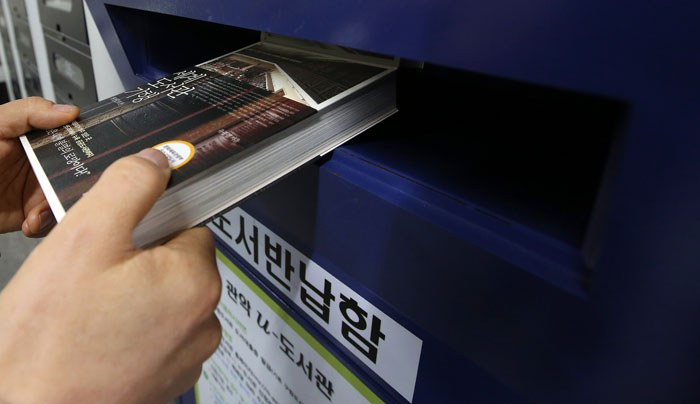
A total of 5,652 additional librarians and other professionals will be employed at school libraries, helping them become centers for training talented human resources.
Finally, the government will collectively subscribe to 24 overseas academic databases and acquire the necessary licenses, so as to help universities around the country. The number of centers that provide access to international academic journals will be increased to 10, so that universities can offer special services in different academic fields.
By Limb Jae-un
Photos: Wi Tack-whan, Jeon Han
Korea.net Staff Writers
jun2@korea.kr

In addition, the number of books available at public libraries will hit 94.6 million this year, an increase of around 5 million books. The Presidential Committee on Library and Information Policy and the Ministry of Culture, Sports and Tourism announced their second comprehensive library development plans on January 30. According to the scheme, 47 new public libraries will open this year, including 12 in Gyeonggi-do (Gyeonggi Province), eight in Seoul and five in Incheon. With these additions, the number of people per public library will be 53,000.
The government has set aside KRW 758.3 billion for library-related budget items, and KRW 583.6 billion of that will be spent on building new libraries and upgrading existing ones.


Danuri Library in Danyang, Chungcheongbuk-do (North Chungcheong Province), has books and programs for multicultural families.
The culture ministry and the Ministry of Education, among others organizations, will also provide various programs at the public libraries. There will be an average of 40 lifelong learning classes offered at each library, targeting everyone from pregnant women to the elderly. The "humanities on the road" program will be expanded so that up to 60,000 citizens can benefit from the program at 280 libraries across the country. Some 2,460 lectures on literature, including face-to-face meetings with authors, will be provided at the libraries as part of various reading and cultural programs.


What used to be office space at the Gwanak District Office has been renovated to become the 'small library that dreams of dragons.' Over 1,000 people visit the library every day.
The culture ministry plans to employee 191 additional librarians at public libraries in 17 cities and provinces to upgrade the quality of their services. The number of public libraries where a single compatible library card can be used will rise to 395. The culture ministry will expand its ubiquitous library service of automated library kiosks and install radio-frequency identification (RFID)systems at public libraries.
Services for those who have difficulty in accessing a library will be strengthened. In addition, library services for non-Korean residents and for multicultural families will be expanded. Multicultural sections will be set up at five public libraries, and more libraries, up to 100, will provide multicultural programs. The government will provide more books in Braille, videos with sign language and subtitles, digital audio books and other reading aids for the disabled.


Residents of Gwanak District can request books online and pick them up or drop them off at the U-Library kiosk in Seoul National University Station along subway line No. 2.
A total of 5,652 additional librarians and other professionals will be employed at school libraries, helping them become centers for training talented human resources.
Finally, the government will collectively subscribe to 24 overseas academic databases and acquire the necessary licenses, so as to help universities around the country. The number of centers that provide access to international academic journals will be increased to 10, so that universities can offer special services in different academic fields.
By Limb Jae-un
Photos: Wi Tack-whan, Jeon Han
Korea.net Staff Writers
jun2@korea.kr
Related Contents
Most popular
- Grammy-winning producer calls Suga of BTS 'amazing artist'
- 'Universal love, family' themes fuel success of 'King of Kings': director
- Council sets minimum hourly wage in 2026 at KRW 10,320
- Expansion of foreign app system raises tourist convenience
- Nat'l population diversity rose nearly 8% from 2018-22: study
